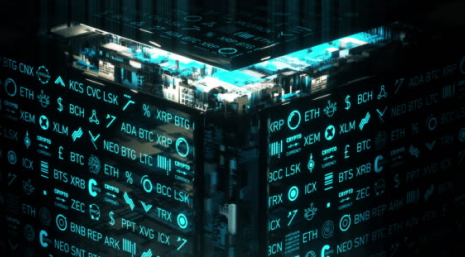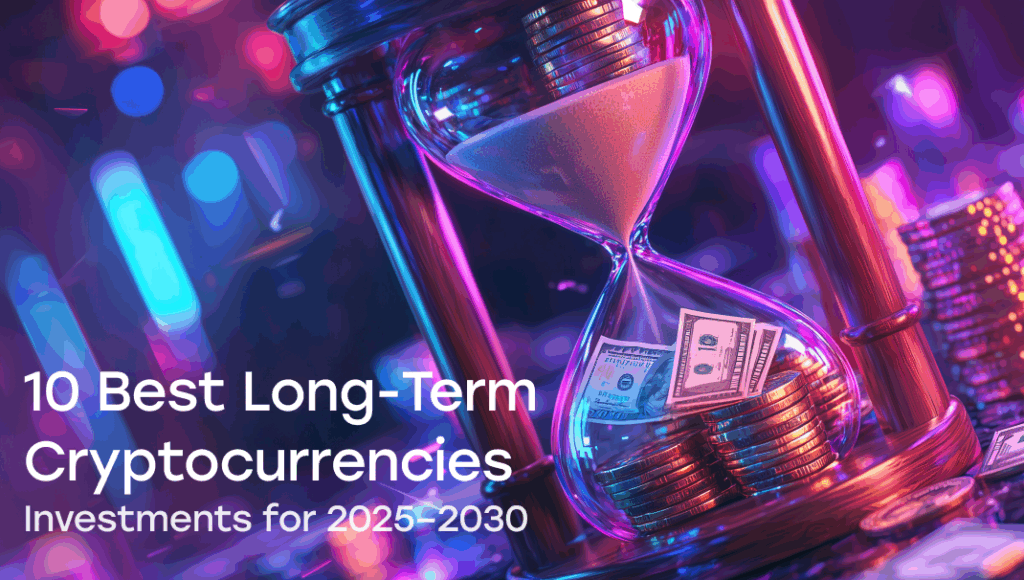share
Decentralized Finance, or DeFi for short, is the latest advanced e-finance ecosystem based on public blockchains. Like cryptocurrency, which is a peer-to-peer electronic money system, the new trend in this segment is serving as a fully peer-to-peer system of electronic financial instruments. Most applications are available to everyone. Each network user can interact with the ecosystem: manage real-world assets using special applications, trade, and lend.
Among the features and benefits of DeFi solutions, it is worth noting that business rules are mandatory written in a smart contract. After signing the contract, the DeFi project is launched, and the application can work independently. An advantageous difference from the well-known financial sector is the absence of controlling dispatchers, as well as the need to fill out various complex forms.
DeFi is managed by a smart contract and voting using DeFi tokens. Thankful decentralization, control over the system is distributed among many players, while at the same time there are no unnecessary intermediaries and all operations are transparent and fast. The use of decentralized finance has already gained popularity due to the convenience of obtaining loans without the participation of banks. DeFi token development includes a lot of nuances and requires certain knowledge. Therefore, it is worth contacting a team of experts who are familiar with this area.
About DeFi in Simple Words
Decentralized finance DeFi has been gaining attention since the collapse of all markets in March 2020, but few understand the essence of this phenomenon. At first, it was a common name for analogs of traditional financial instruments that are implemented in a decentralized architecture. Now they have grown into a public ecosystem consisting of decentralized services and applications based on public blockchains, mainly on Ethereum.
The goal of decentralized finance is to create a financial system that is open to everyone and does not require trust from users, as well as promote the principle of self-sufficiency. This aspect seems like a disadvantage to conservatives, but it teaches you to take responsibility for DeFi investments.

DeFi vs. FinTech
Decentralized Finance seems to be similar to financial technology (FinTech), which also aims to modernize financial services. However, they differ in that FinTech simply relies on the traditional financial system, while decentralized finance DeFi already includes new components.
Take, for example, the popular fintech service for international payments TransferWise. Although its fees are several times lower than most banks, it still uses bank accounts and other infrastructure, which may already be outdated. The peculiarity of TransferWise is that bank accounts opened in many countries make it easy to transfer money. When sending currency to another country, fintech services take it for themselves, and the recipient is immediately given money from their bank account in the country where the recipient is located. So they speed up the processing of transactions and reduce the commission.
When comparing services to a DeFi transfer like Dai, you don’t need to trust the money to a fintech company or bank to transfer Dai. Instead of centralized intermediaries, new Dai transactions are verified by Ethereum miners and then included in new Ethereum blocks. The miners will process the transaction for the equivalent of one US dollar. And it will take about 15 seconds – so much is needed to create one block in which all verified transactions are recorded.
Finally, you can send your crypto tokens (in our case, Dai) to anyone who has an Ethereum ERC-20 token-enabled wallet. It doesn’t matter where this person lives – even in a country under sanctions or with an outdated financial system, he will receive your DeFi tokens in 15 seconds.
Where Is DeFi Tokenization Being Used?
Since decentralized finance is an affordable alternative to many traditional financial services, anyone with the Internet and a minimum knowledge of crypto tokens can interact with the DeFi ecosystem and manage the assets added there. To do this, blockchain developers have created hundreds of new DeFi projects with their protocols, peer-to-peer networks, decentralized applications (dApps), and DeFi token development services.

When we take on DeFi, we start with the terms of reference for the DeFi token development of the project. Without a detailed TOR, it will not be possible to evaluate and start creating your future DeFi token project.
At the moment, there are various types of DeFi tokens, namely:
- Equity token. Associated with the shares and capital of the company that issues them.
- Security tokens. Clients invest their money in ICOs in the hope of profit, and they act like ordinary securities.
- Utility Tokens. They provide access to a product or service.
- Payment tokens. Used to make payments.
Stablecoins
The first widespread use of DeFi was projecting with stablecoins. This is a crypto token, the rate of which is pegged to the price of the underlying financial instrument (fiat currency, commodities, raw materials). Accordingly, all issued stable coin units are provided with a reserve located in reliable storage. The value of dollar-pegged stablecoins is provided by the issuer itself, and their purchase and sale are associated with AML/KYC procedures.
Examples of projects with DeFi tokens: mStable USD (MUSD), sUSD (SUSD), Wrapped Bitcoin (WBTC). The latter, unlike its dollar counterparts, is pegged to the price of bitcoin, but it works on the Ethereum blockchain technology.
There is another type of crypto project, among which a striking example is MakerDAO, a decentralized autonomous organization (DAO) and popular protocol tokens on Ethereum. It has both a native token and the ability for everyone to issue their own crypto coins via the DeFi protocol. Their emission can be compared with the emission of money backed by gold. Only here, Ethereum tokens are used instead of gold. The user sends some ETH or approved ERC-20 DeFi tokens to a smart contract that creates a new stablecoin. This is referred to as “collateralized debt positions,” which means that the created own DeFi tokens represent a collateralized debt to MakerDAO.
Decentralized Exchanges
Thanks to DeFi, decentralized exchanges (DEXs) returned in popularity in 2021. They operate on the blockchain and do not store cryptocurrency and user data on their servers. That is, these cryptocurrency exchanges act solely as a platform that connects buy and sell orders. This trading model allows you to do without KYC and does not depend on a narrow circle of large traders.
Here are some interesting DEX examples:
- Uniswap DeFi is both a DEX and a decentralized protocol on Ethereum tokens to provide automated liquidity and facilitate the exchange of DeFi tokens through an automated market-making model.
- 1inch.exchange is a multi-DEX aggregator that splits a trading order among non-custodial platforms to minimize slippage and find the best execution price.
- Radar Relay is a decentralized platform that supports the exchange of crypto tokens, opening long and short positions with leverage, depositing ETH, DAI, USDC at interest.
Prediction Markets
Peer-to-peer prediction markets have firmly occupied their niche – these are platforms that allow you to bet on various events, elections, and more. There is a parallel here with ordinary bets, for example, on sports, so the principle of operation does not need a detailed explanation.
Illustrative examples of prediction markets:
Augur is a DeFi platform for creating peer-to-peer prediction markets and a decentralized oracle on Ethereum. There, the collective intelligence (wisdom of the crowd) predicts the outcome of upcoming events, which users can bet on.
Gnosis is a platform with four products:
- Conditional Tokens (a framework for creating event-based conditional DeFi tokens);
- Protocol (DEX with ring trades that maximize liquidity);
- Safe (wallet for storing and managing digital assets);
- GnosisDAO (DAO that runs the platform and prediction markets).
Decentralized Services
In addition to stablecoins, DeFi exchanges, and prediction markets, there are at least 8 more areas that are included in decentralized finance:
- Decentralized autonomous organizations.
- Cryptocurrency loans, or DeFi lending.
- Decentralized insurance.
- Storage and management of DeFi assets.
- Liquidity supply.
- Banking and payments.
- Marketplaces.
- Entertainment platforms (lotteries, online betting).
As worthy examples of decentralized finance in the form of services and applications already implemented and working in these areas, I would like to highlight the following:
Daohaus (DeFi DAO)
A platform where you can learn 40 different DAOs in the crypto space before you join them. You can also create your own DAO on Moloch, an open-source framework. Daohaus aims to be a forward-thinking and user-friendly service for DAO members and creators and to reduce the cost of coordination to zero.
Aave (DeFi- loans)
Ethereum smart contract protocol through which users borrow and lend DeFi cryptocurrencies at interest. Ether loans and 21 types of DeFi tokens, including crypto coins, are available there. Lenders invest their DeFi tokens in a liquidity pool, while borrowers choose the right conditions for themselves and receive an instant DeFi loan. The interest rates in both cases are floating. They are adjusted every 15 seconds, in accordance with the token creation of new blocks of Ethereum.
Etherisc (assurance)
A DeFi platform that allows you to create insurance products and collaborate with other users. In addition to the platform itself, there are two more layers: the general insurance framework (smart contracts, microservices) and the decentralized insurance protocol (rules and standards for interaction with the framework). Etherisc aims to make insurance affordable and fair through transparency and to make buying and selling insurance more efficient by reducing operating costs.
Cobo Wallet (digital asset management)
A multi-currency cloud wallet with mobile apps, crypto asset management, coin staking, and dApps store. Designed for worry-free investment due to the fact that it dynamically allocates assets in order to minimize risks. It supports 20 blockchains and more than 700 tokens that can be transferred to other wallet users for free.
Huobi Wallet (digital asset management)
Multi-currency wallet and dApp browser with a clear interface that will appeal to all users, especially beginners. Supports over 1000 cryptocurrencies, coin staking, and multi-signatures. Huobi team guarantees the safety of assets, and this is confirmed by several patents for data security, including isolation and encryption.
Ramp Network (banking and payments)
A payment gateway that allows you to buy BTC, DAI, DOT, ETH, STAKE, USDC instantly with a debit card or bank account. Promotes open financial activity complies with laws and regulations. Offers developers the Ramp Instant SDK for integration with third-party exchange platforms, desktop, and mobile applications.
District0x (Marketplace)
Ethereum-based network of decentralized marketplaces and communities. Its main goal is to facilitate peer-to-peer crypto market coordination and community management. Initial coin offering the d0xINFRA framework for developers to create DeFi marketplaces or communities using smart contracts and front-end libraries.
Benefits of DeFi
In 2022, DeFi projects are gaining attention almost as much as ICOs in 2017 and IEOs in 2019. But why is there such a stir around them? What are the prospects and benefits of DeFi for participants and organizers?

Decentralization
One of the main pros of DeFi is true decentralization. The very fact of managing a crypto project using smart contracts by all participants, and not leaders, means a lot.
Accessibility for Everyone
DeFi allows people who previously could not use financial services to participate in the global economy. In the world, about 1.5 billion people are unbanked, meaning they do not have a bank account or a debit or credit card. There are many reasons for this injustice, but the main one is that many people who are not covered by banking services do not have all the documents that financial institutions usually request. It is also difficult to get the necessary credit scores in certain countries. And somewhere, there are no bank branches outside the capital at all.
The Possibility of Earning
In addition to maintaining a stable value for money, the use of decentralized finance allows you to passively earn on the available cryptocurrency. There are many options: high-interest savings accounts, asset placement, and so on.
Financial Control
In DeFi, only you manage your crypto assets. With decentralized services and organizations like MakerDAO, you are in control of your finances 24/7. No official will be able to suddenly ban you from the dApp, freeze your account, or seize your funds.
Lucidity
In DeFi, all information is open and available for review. It allows you to choose safe projects and services while sitting at home. In real life, if you need a loan, you have to go to lenders and compare interest rates to make sure the information is correct, and there are no hidden fees. Things are different in DeFi token — all relevant information about lending protocols like Compound is easily accessible and transparent.
DeFi businesses offer the following benefits:
- global availability;
- reliable smart contracts;
- programmable digital assets;
- high security;
- attractiveness for potential investors;
- widespread attention.
How to Order a DeFi Token Development?
DeFi token is developing rapidly and is highly valued in the market. It is getting more and more profitable to invest there. Decentralized Finance is becoming an affordable alternative to mainstream financial services. There are many effective platforms for competent business management, asset management, and work with security tokens and equity tokens. In order to be in the trend, you need to understand them and use them correctly. To understand the DeFi token and cryptocurrency system, you need to have basic knowledge and be able to create projects. If you are not a blockchain developer, then writing working code can cause a number of difficulties. It is most advantageous to entrust the development to those who understand this.
A team of professionals who specialize in DeFi token development and know exactly how to minimize the risk of smart contract hacking. Digital Marketing Agency assists in creating a protocol that will allow you to trade cryptocurrencies, make loans, issue stablecoins security tokens, and insure risks. We provide the client with an open-source code that can always be checked, modified, and used in other decentralized finance applications. Entrust the creation and audit of a smart contract for any task to experienced developers.

The process of developing a DeFi service will look different in each DeFi token development company, and it depends on several aspects: the chosen blockchain network, programming language, application functions, consensus mechanism, etc. In any case, the development DeFi token will consist of the following stages:
- Business analysis.
- UI/UX design development.
- Preparatory stage – setting up the DeFi token development environment, API, server-side, and architecture.
- DeFi token development + testing.
- Deployment.
- Service and support.
These are important DeFi token development services that any development company should provide. Choose a DeFi token development company that will accompany you at all stages of creating customized solutions.
Integration With Other Services
For a DeFi token to be of interest to users, it must be linked to other financial services. At a minimum, with banks, exchanges where you can buy and/or sell your DeFi tokens. In addition, integration with popular cryptocurrency wallets is also needed: Blockchain, Exodus, Electrum, Jaxx, BitGo, Ledger, Trezor, and others.
Also, depending on the niche, integration with other services will be needed. For example, trading platforms, service providers, and payment gateways, if the created DeFi tokens will be a means of payment. Or with marketing tools if your project is related to advertising. In addition, integration with Facebook or Instagram. Find your DeFi token development company. For example, contact our ICODA team, drop us a line and proceed to create your token.









